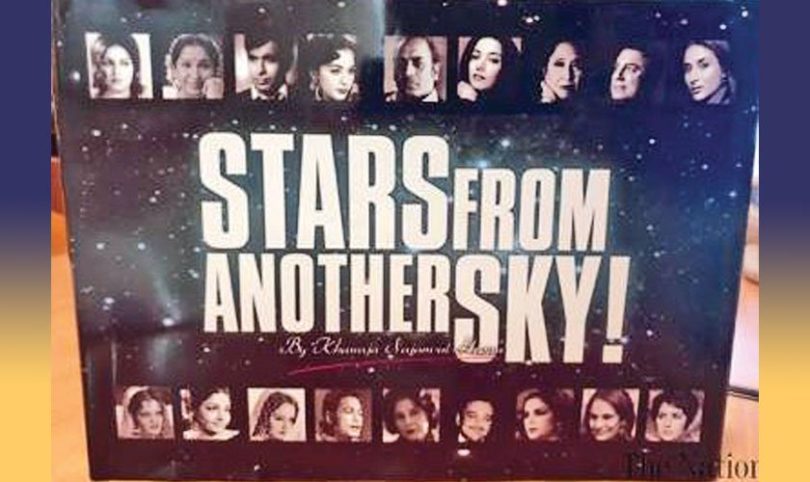Omair Alavi|Instep|January 26, 2020
Stars From Another Sky allows you to take a walk down memory lane with Khawaja Najam ul Hasan.
The name of Khawaja Najam ul Hasan needs no introduction. The veteran PTV producer has been around since the ‘70s and has been associated with some of the most memorable PTV productions, including Bazm-e-Laila, Meri Pasand and the PTV Silver Jubilee Awards. With his vast experience, having actively worked between the 1970s and the 2010s, it was about time that he penned his memoirs and wrote about his detailed meetings with stars. Stars From Another Sky! is his tribute to the countless actors, actresses, singers, music composers and filmmakers he met during his career as a PTV producer, both in personal and professional capacity.
The book is nothing less than a treasure trove, especially if you are seeking to learn about your favorite celebrity who may or may not be alive today. Published in late 2019, the book discusses Khawaja Najam ul Hasan’s meetings with many Pakistani artists including Madam Noor Jehan, Farida Khanum, Mehdi Hassan, Sabiha Khanum, Runa Laila, Musarrat Nazir, Rani Begum, Shamim Ara, Tahira Syed and Tina Sani to name a few. It reveals why Madam Noor Jehan agreed to be part of TV show Tarannum when she was at her peak; what made veteran film actress Musarrat Nazir make a comeback as a singer in the 1980s; why did Shehnaz Sheikh host the comeback show of Iqbal Bano? Khawaja Najam ul Hasan talks about all these artistes and more, adding his own point of view in the process.
For those looking for the history of Pakistan television, especially the last 50 years, this book will prove to be ideal for research purposes. How PTV covered the Islamic Summit Conference in 1974, what made the general elections of 1977 historic and what were the restrictions TV producers faced during the Zia ul Haq regime… the author talks about it in detail, with no holds barred. However, one feels that some of the information he shares should have been kept confidential. There is trivia that reads as either delicate and sensitive or completely irrelevant and inconsequential.
While the book mentions some of Pakistan’s biggest celebrities, it also talks about those who visited from across the border, including Dilip Kumar, Sunil Dutt, and Shabana Azmi. The author also writes about his visit to India where he got to meet Asha Bhosle; his excitement from that meeting is evident in the way he has written the chapter. While there is mention of Randhir Kapoor and Rishi Kapoor, who visited Pakistan while they were filming Henna, there is hardly any mention of Kareena Kapoor-Khan in the book, who is for some reason on the cover alongside the legends. As for some of the chapters, the editor should not have followed the mini-biographies format, because there was too much information that could have been carefully inserted in text, rather than compiled in a haphazard manner.
Stars From Another Sky! doesn’t have colored photographs, which would have enhanced the historical value of this book, and yes, his photographs with celebrities are worth the readers’ attention but a few behind the scenes photographs would have done a great service to fans and followers of PTV too. The book reads more like a diary when it should have read like a book that talks about Pakistan Television’s history and about the people who made it a great institution. One hopes that the author will have it re-edited ahead of the second edition, to make it seem more like a well-researched documentary, something he excels in. Some of the dates need to be rechecked (Tansen didn’t air in 1988!); some of the information needs to be deleted and when that’s done, this book will be in a league of its own.







